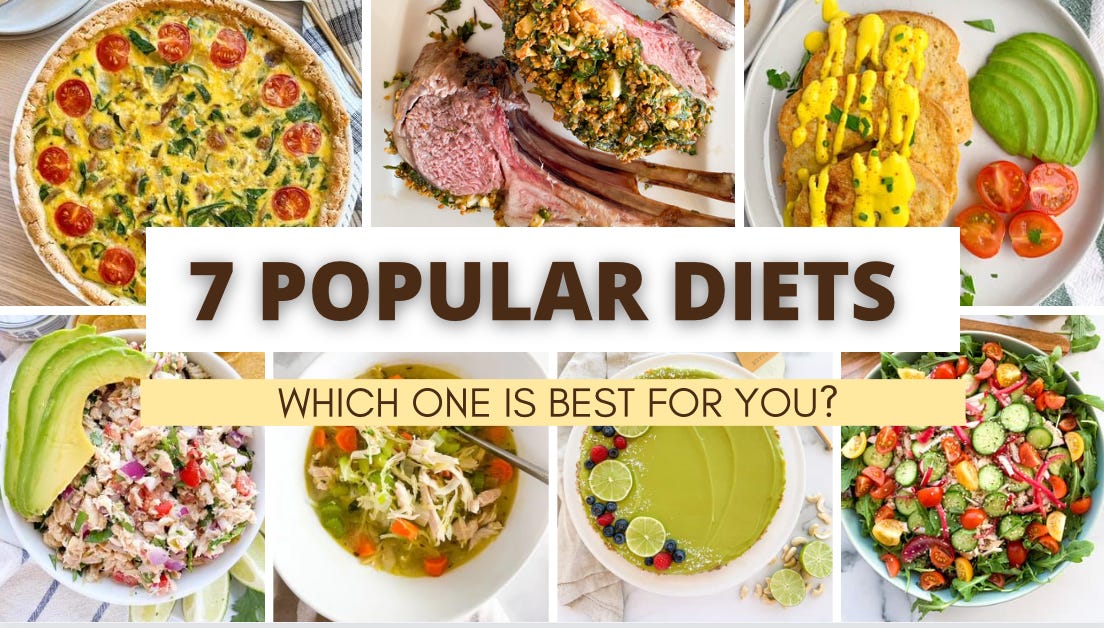A Quick Guide To 7 Popular Diets & Which One Is Best For You
When it comes to nutrition, a variety of dietary approaches have gained social media attention, each advocating for specific principles and promising unique health benefits. Let’s talk about seven popular diets: Keto, Paleo, Whole30, Vegan, Low Carb, Gluten-Free, and Carnivore. What are their basic fundamental principles, food restrictions, and potential health benefits? Take a look at the list below and then you can better understand which dietary approach aligns with your personal goals and values.
Order my cookbook EAT REAL FOOD.
Use code KRYSTEN at checkout for a discount.
The Keto Diet: The ketogenic diet emphasizes a high-fat, moderate-protein, and very low-carbohydrate intake. It aims to shift the body into a state of ketosis, where it primarily uses fat for energy instead of carbohydrates. This diet restricts carb-rich foods like grains, fruits, and sugar, promoting weight loss, improved blood sugar control, and increased mental clarity.
The Paleo Diet: Paleo, short for Paleolithic, is inspired by the eating habits of our ancient ancestors. It focuses on whole, unprocessed foods, such as lean meats, fish, fruits, vegetables, nuts, and seeds. Grains, legumes, dairy (except for ghee), and processed foods are avoided, with the aim of supporting weight loss, optimizing digestion, and reducing inflammation.
The Whole30 Program: The Whole30 program is a 30-day dietary reset designed to eliminate common inflammatory foods, such as grains, dairy, legumes, sugar, and processed additives. It emphasizes whole foods, such as lean meats, seafood, vegetables, fruits, and healthy fats. The goal is to identify food sensitivities, improve gut health, and develop a healthier relationship with food. Most lose weight but more importantly they feel better after 30 days without seed oils, highly processed foods and sugar. This isn’t a weightless diet. I have done 4 rounds of Whole30 and love it.
The Vegan Diet: Veganism is a lifestyle and dietary choice that excludes all animal products, including meat, fish, dairy, eggs, and yes - even honey. A vegan diet primarily focuses on plant-based foods, such as fruits, vegetables, grains, legumes, nuts, and seeds. It is associated with lower risks of heart disease, improved digestion, and reduced environmental impact. In my opinion there are many nutritional deficiencies with the vegan diet and have known many longtime vegans who have at least added eggs, fish and even marine collagen to their lifestyle and they saw positive changes in how they felt.
Keep reading with a 7-day free trial
Subscribe to Krysten's Kitchen to keep reading this post and get 7 days of free access to the full post archives.





